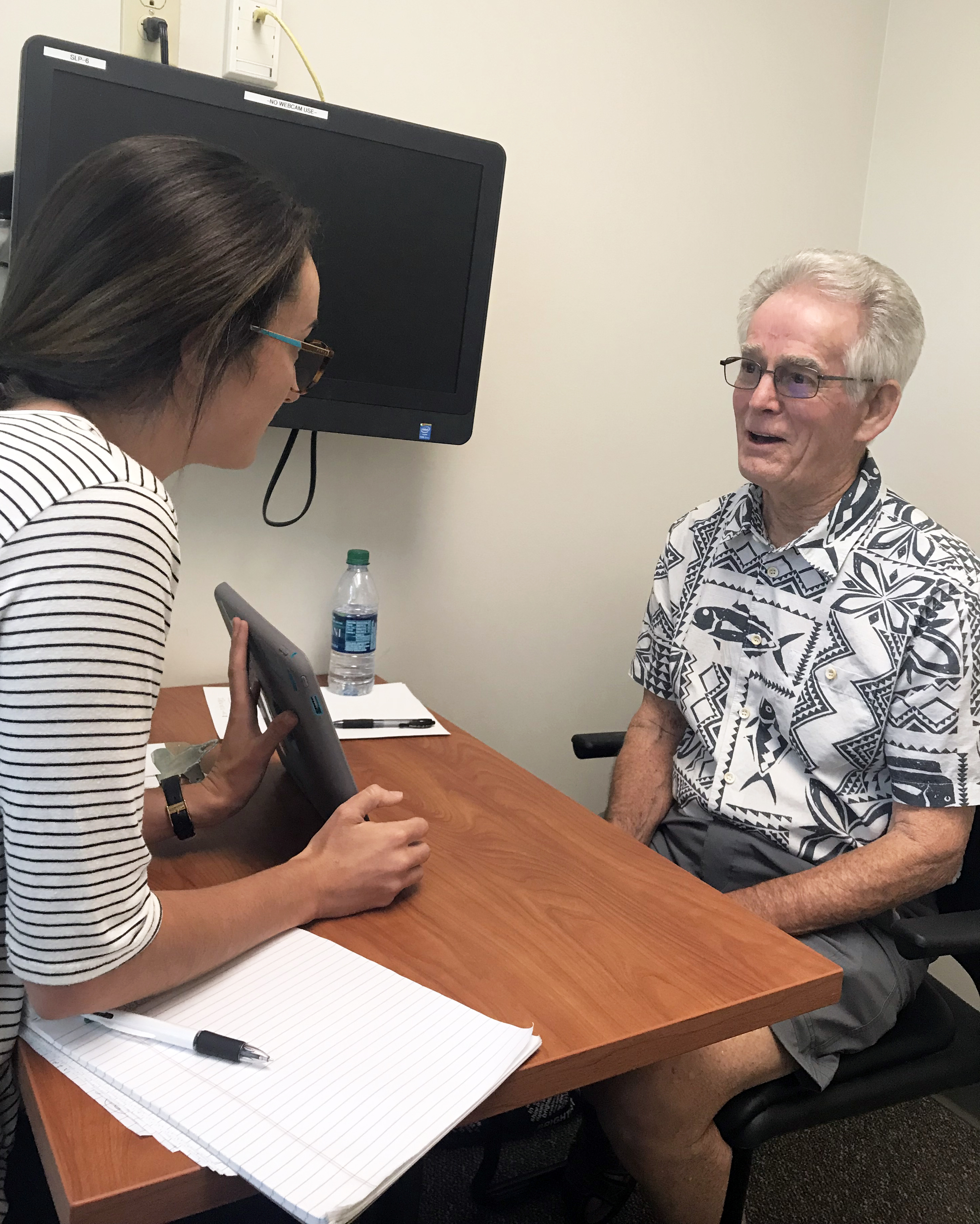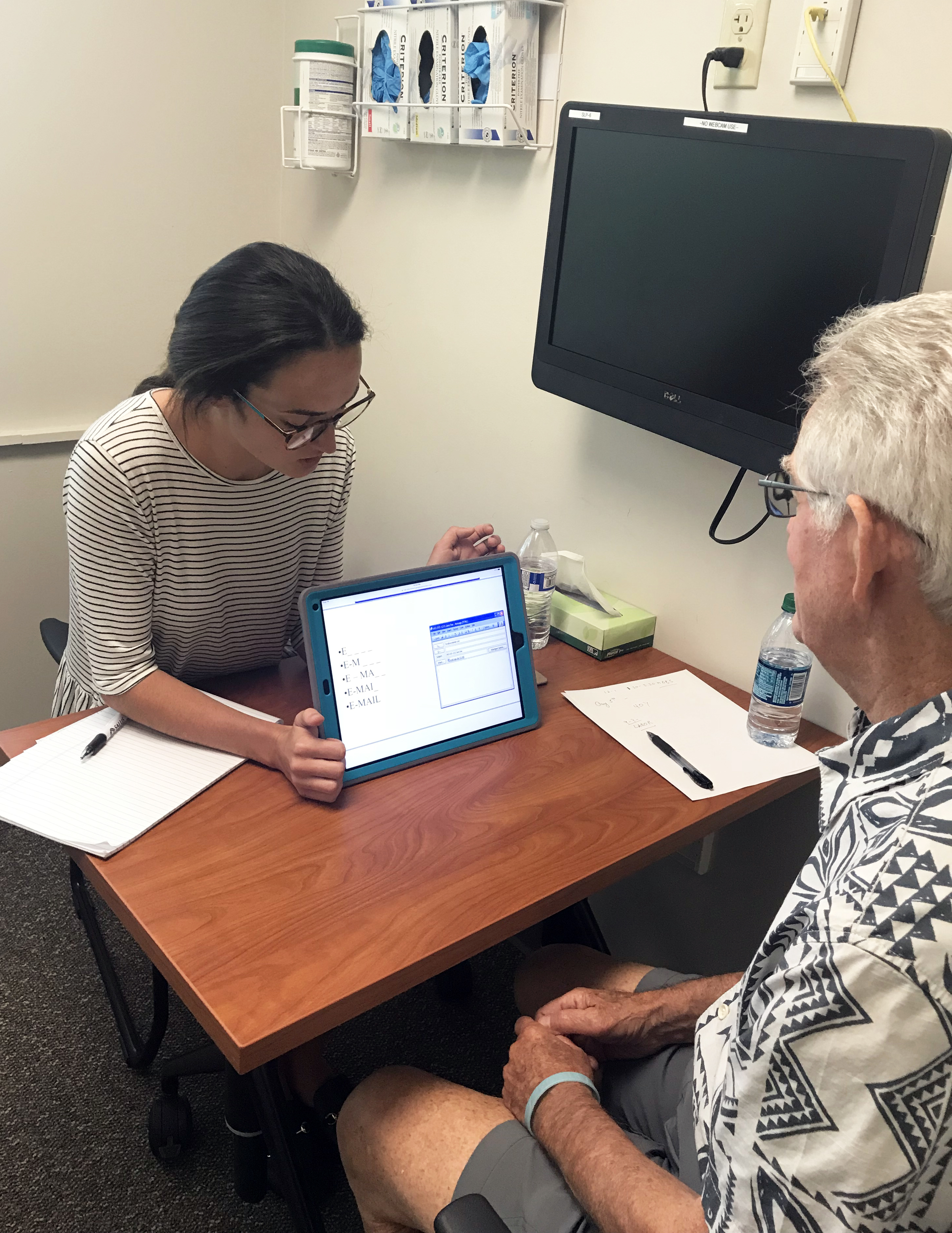SLI Provides Hope for Stroke Survivor with Aphasia
 Aphasia is an impairment of language typically caused by an injury to the brain such as a stroke. While aphasia does not affect the intelligence of the person diagnosed, it does make communication difficult - leading to problems with speaking, listening, reading and writing.
Aphasia is an impairment of language typically caused by an injury to the brain such as a stroke. While aphasia does not affect the intelligence of the person diagnosed, it does make communication difficult - leading to problems with speaking, listening, reading and writing.
According to the National Aphasia Association, more than 84 percent of Americans have never heard of aphasia, but the disorder affects two million people in the United States alone.
John Heary, 76, is one of those two million people. He was diagnosed with aphasia after suffering a stroke in 2016. Nearly two years later, his recovery journey brought him to the Speech-Language Institute (SLI) of Salus University for therapy.
During his therapy sessions, Heary is paired with a speech-language pathology (SLP) student in the University’s College of Education and Rehabilitation (CER). Together they work on a variety of tasks specifically designed to improve Heary’s language and comprehension skills.
In one such activity, a student shows Heary a photo of a specific word while using the word in a sentence. After giving the spelling of the word, the student encourages John to repeat the word several times.
“It’s known as confrontation naming - being able to see a picture, recognizing what it is and having him say it,” said Maddalena Buonomo, an SLP student at Salus.
 “If it’s a new word for me, she’ll say it first and then I’ll start to get it,” Heary said. “You may not believe it today but I can do a lot better than I could before.”
“If it’s a new word for me, she’ll say it first and then I’ll start to get it,” Heary said. “You may not believe it today but I can do a lot better than I could before.”
Even with the progress he’s made in therapy, Heary admits it hasn’t been an easy road.
“Early on I would think to myself, ‘How many times am I going to have to say this word again and again?” he said. “Because it can be difficult, some people stop coming. I never stopped but I thought about it.
His experience with the students and staff at SLI has helped to keep him motivated.
“For me it’s their attitude. Sometimes it takes me a while to get a certain word,” Heary said. “I may get frustrated but they don’t and that really motivates me.”
Along with therapy sessions throughout the week, Heary also attends SLI’s monthly aphasia support group for stroke survivors. Ali Finkelstein, MA, CCC-SLP, SLI clinical educator and facilitator of the aphasia support group, commends Heary’s positive attitude.
“John perseveres and sticks with it,” said Finkelstein. “He always comes in with a lot of energy and a great attitude and that’s what helps us help him.”
As Heary nears his two year anniversary as a stroke survivor, he’s more determined than ever. His goal is to continue working to improve his language skills and to encourage others who are dealing with the disorder.
“A lot of people who have aphasia want to give up,” said Heary. “The goal is to get the word out and to let people know that therapy works. Helping people is what it’s all about.”